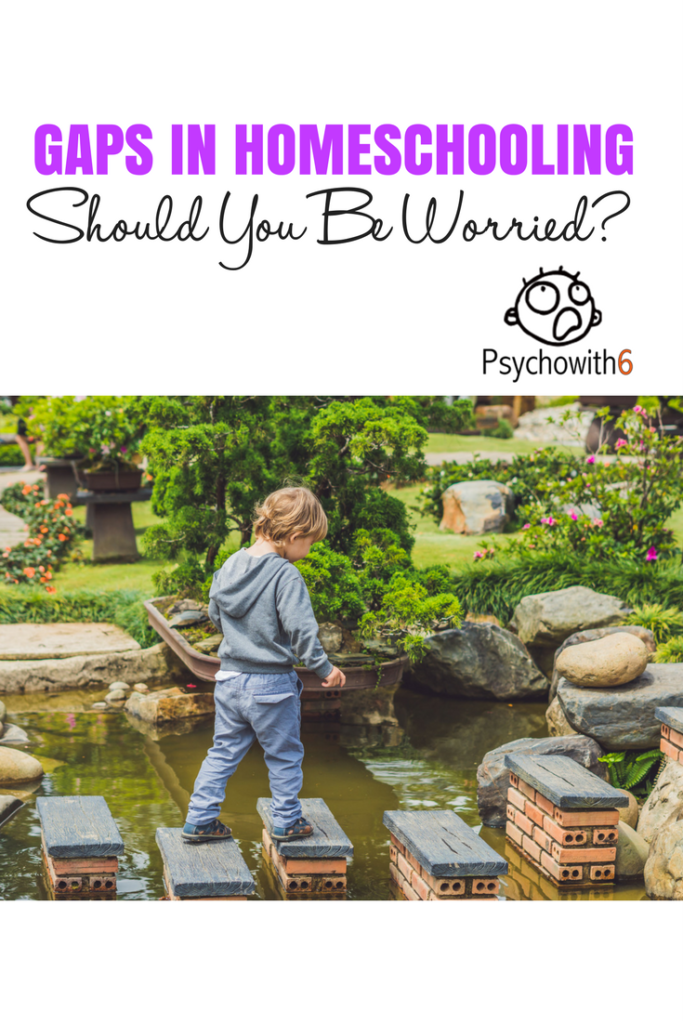You started off with one math curriculum and switched. You taught history using unit studies and then switched to a chronoligical approach. You’ve been studying some science topics in depth and others you haven’t touched on. Should you be worried?
That is the subject of my podcast interview with Charlene Notgrass this week. She convinced me that you and I don’t need to worry about gaps. Here’s why:
Every education has gaps.
It isn’t possible to learn every aspect of every subject, regardless of how your child is being educated. Public school students have gaps, private school students have gaps, and homeschool students have gaps.
There is some information you won’t teach your child even if you use the best curriculum you can find. It just isn’t possible. Because that’s true, we have to decide what we will teach our children and what we won’t.
[Read Curriculum Paralysis: How to Decide What to Use This Year]
Gaps mean studying some subjects in depth.
Charlene discusses an amazing example of how her daughter invested enormous amounts of hours into a passion of hers. That passion continues to be an important part of her daughter’s life today. Had Charlene insisted on studying everything with a light touch, her daughter would have missed the life-changing opportunity that homeschooling allowed her.
That in-depth study should be directed to our children’s natural talent or bent. That means if our child is crazy about computers, we can spend an inordinate amount of time on this subject and less on reading classic books this child doesn’t enjoy.
[Read Teaching to Your Child’s Talent]
God fills the gaps.
Our children’s learning won’t end when they graduate from high school. They have time to keep learning. If we use our homeschooling years to instill a love of learning and teach our kids how to teach themselves, God will fill the gaps that He chooses to fill.
That doesn’t mean we want to send our children to college or a trade or even to homemaking without the skills they need. We must do our best to teach our kids to read, write, and calculate. If they struggle, we must get help for them, just as we would get help if they had a physical impairment.
[Read How to Work with Professionals as a Homeschooler]
Christian homeschoolers also need to be taught the faith. I believe an education in Bible (including memorization), theology, and apologetics are essential.
The responsibility for educating a child is daunting. That’s why we depend on God to fill the gaps. Throughout history, we see examples of men and women who didn’t have the education to be world changers and yet they were. After all, God used uneducated fisherman to change the world.
I have seen Him fill the gaps in my life as well. I hadn’t taken a course in world history in all my educational years. It was a gap that God filled gloriously with homeschooling. I have so loved learning history with my children. I didn’t take any courses in teaching, yet I have taught preschool through the college level in the past 21 years. I don’t have a degree in English, yet I’ve worked as a freelance writer and have written language arts curriculum.
In the same way, God is faithful to fill the gaps in your child’s education, too. Cover your educational choices in prayer. Be diligent. Then trust God to do the rest.
What gaps in your own education has God filled in your life? Let me know in the comments.







